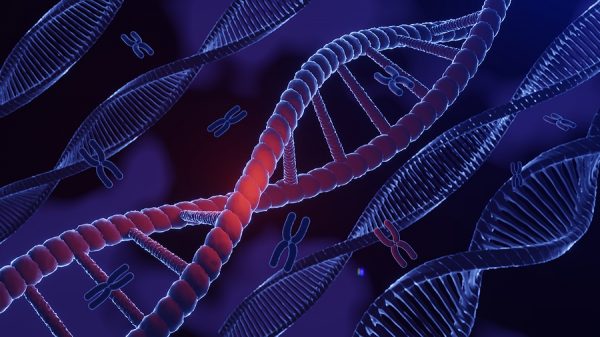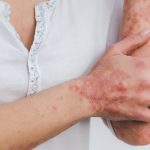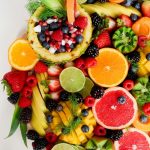When it comes to health, people place a lot of emphasis on their family history. They think “Oh, geez. Dad and grandpa both died so young that I probably don’t have much time left.”
Well I have some great news for you. It turns out that genetics don’t play nearly as big a role in your lifespan as previously thought.
In the largest analysis of its kind, researchers analyzed 54.43 million family trees from Ancestry.com – including birth and death dates for 406 million people. And what did they discover?
Inherited genes accounted for less than 7% of people’s life spans! That’s much lower than the previous estimates of 15% to 30%.
And that’s not the only good news.
The impact of genetics is more predominant when we are young, but decreases as we age. So the older we get, the less our genetics matter. If you’re over the age of 55, you’re more likely to die from age-related disease than because of the genes that were passed on to you.
In other words, the genes you inherit have very little to do with your destiny, especially later in life. This is where something called your “epigenome” comes in. It acts as a command center and determines which genes get turned on, and which get turned off.
Turn Bad Genes Off and Good Genes On
Pretty much everything you do in your life has a positive or negative effect on your epigenome.
Sit around and do nothing all day, and “bad genes” may be activated. Get up and get moving, and you can shut those down while triggering activation of “good genes”.
For example, people who carry the FTO (obesity-promoting) gene variant have a 22% higher risk of obesity than those without it. But when people with this gene take part in regular exercise, it reduces expression of the gene and considerably lowers the risk of obesity.
But exercise doesn’t just change the expression of your fat genes. Levels of physical activity also alter epigenetics involved in cancer, inflammatory disease, diabetes, heart disease and more.
In other words, exercise does a whole lot more than just boost your heart health, lung capacity, metabolism and strength. It also influences the action of genes that could potentially save you from most of today’s deadliest health concerns.
The foods you eat can also play a positive – or negative – role on your epigenome. When you fill up with unhealthy fats and foods that are sugary, processed or refined, it’s going to turn on harmful genes.
But fill your meals with fresh, whole foods and it can do just the opposite. They can activate genes that are protective for your health.
For instance, foods that contain sulforaphane can turn on tumor inhibitor genes. This explains why cruciferous vegetables like broccoli, kale, cauliflower, radishes and cabbage are such potent cancer fighters. So make sure to enjoy plenty of fresh, organic cruciferous veggies every day.
The epigallocatechin-3-gallate (EGCG) in green tea can also reactivate tumor inhibiting genes. Your best bet is to use loose, organic green tea leaves. But since it’s impossible to know the exact amount of EGCG in any given tea, a green tea supplement may be preferrable.
Resveratrol, found in grape skins, is especially notable for being able to turn on your SIRT1 gene. This is commonly called the “youth gene”. It helps your body produce more mitochondria… the energy factories that keep your cells powered up to youthful levels.
For the biggest impact, I suggest supplementing with about 100 mg of resveratrol each day. You can add 25 mg of pterostilbene (a close cousin to resveratrol) to amplify the effects.
Curcumin, the main compound in turmeric, is one of my favorites. Not only is it one of the best inflammation fighters available to you. It also has numerous epigenetic effects. It works on many different levels to change gene expression related to cancer, inflammation and Alzheimer’s disease.
To make sure you’re getting the full benefits that curcumin offers, I recommend taking it in supplement form. Look for one that is standardized to 90% to 95% total curcuminoids. And make sure it includes bioperine, a black pepper extract that substantially increases bioavailability.
Eat for Your Genes
It’s a known fact that gene expression varies widely between people who eat an Americanized diet, and those who eat more like the Mediterranean’s do.
So if you really want to change the expression of your genes for a healthier and more vigorous life, I recommend adopting a Mediterranean style diet.
Just consider this. When men with prostate cancer switched to a diet similar to the one that Mediterranean’s eat, it changed the gene expression in their prostates. An amazing 453 genes that play a role in tumor formation were down-regulated.
The Mediterranean way of eating can also activate genes that play a role in protecting against cardiovascular disease, inflammation and the build-up of arterial plaque.
So make organic, antioxidant-rich fruits and vegetables the central focus of your meals. Include all colors of the rainbow for the most impact on positive gene expression.
For even more power over your genes, develop good sleep habits, take control of your stress levels, avoid over-consumption of alcohol and don’t smoke.
The healthier the choices you make, the better chances you have of activating genes that protect your health… and turning off the ones that are harmful.
SOURCES:
Ruby JG, Wright KM, Rand KA, Kermany A, Noto K, Curtis D, Varner N, Garrigan D, Slinkov D, Dorfman I, Granka JM, Byrnes J, Myres N, Ball C. Estimates of the Heritability of Human Longevity Are Substantially Inflated due to Assortative Mating. Genetics. 2018 Nov;210(3):1109-1124.
Yamamoto R, Chung R, Vazquez JM, Sheng H, Steinberg PL, Loannidis NM, Sudmant PH. Tissue-specific impacts of aging and genetics on gene expression patterns in humans. Nature Communications. 2022;(13):5083.
Jiang X, Holmes C, McVean G. The impact of age on genetic risk for common diseases. PLoS Genet. 2021 Aug 26;17(8):e1009723.
Kilpeläinen TO, Qi L, Brage S, Sharp SJ, Sonestedt E, Demerath E, Ahmad T, Mora S, Kaakinen M, Sandholt CH, Holzapfel C, Autenrieth CS, Hyppönen E, Cauchi S, et al. Physical activity attenuates the influence of FTO variants on obesity risk: a meta-analysis of 218,166 adults and 19,268 children. PLoS Med. 2011 Nov;8(11):e1001116.
Whayne TF. Epigenetics in the development, modification, and prevention of cardiovascular disease. Mol Biol Rep. 2015 Apr;42(4):765-76.
Ali Khan M, Kedhari Sundaram M, Hamza A, Quraishi U, Gunasekera D, Ramesh L, Goala P, Al Alami U, Ansari MZ, Rizvi TA, Sharma C, Hussain A. Sulforaphane Reverses the Expression of Various Tumor Suppressor Genes by Targeting DNMT3B and HDAC1 in Human Cervical Cancer Cells. Evid Based Complement Alternat Med. 2015; 2015: 412149.
Nandakumar V, Vaid M, Katiyar SK. (-)-Epigallocatechin-3-gallate reactivates silenced tumor suppressor genes, Cip1/p21 and p16INK4a, by reducing DNA methylation and increasing histones acetylation in human skin cancer cells. Carcinogenesis. 2011 Apr;32(4):537-44.
Ungvari Z, Sonntag WE, de Cabo R, Baur JA, Csiszar A. Mitochondrial protection by resveratrol. Exerc Sport Sci Rev. 2011 Jul;39(3):128-32.
Boyanapalli SS, Kong AT. “Curcumin, the King of Spices”: Epigenetic Regulatory Mechanisms in the Prevention of Cancer, Neurological, and Inflammatory Diseases. Curr Pharmacol Rep. 2015 Apr;1(2):129-139.
Ornish D, Magbanua MJ, Weidner G, Weinberg V, Kemp C, Green C, Mattie MD, Marlin R, Simko J, Shinohara K, Haqq CM, Carroll PR. Changes in prostate gene expression in men undergoing an intensive nutrition and lifestyle intervention. Proc Natl Acad Sci U S A. 2008 Jun 17;105(24):8369-74.
Castañer O, Corella D, Covas MI, Sorlí JV, Subirana I, Flores-Mateo G, Nonell L, Bulló M, de la Torre R, Portolés O, Fitó M. In vivo transcriptomic profile after a Mediterranean diet in high-cardiovascular risk patients: a randomized controlled trial. Am J Clin Nutr. 2013 Sep;98(3):845-53. Camargo A, Delgado-Lista J, Garcia-Rios A, Cruz-Teno C, Yubero-Serrano EM, Perez-Martinez P, Gutierrez-Mariscal FM, Lora-Aguilar P, Rodriguez-Cantalejo F, et al. Expression of proinflammatory, proatherogenic genes is reduced by the Mediterranean diet in elderly people. Br J Nutr. 2012 Aug;108(3):500-8.




